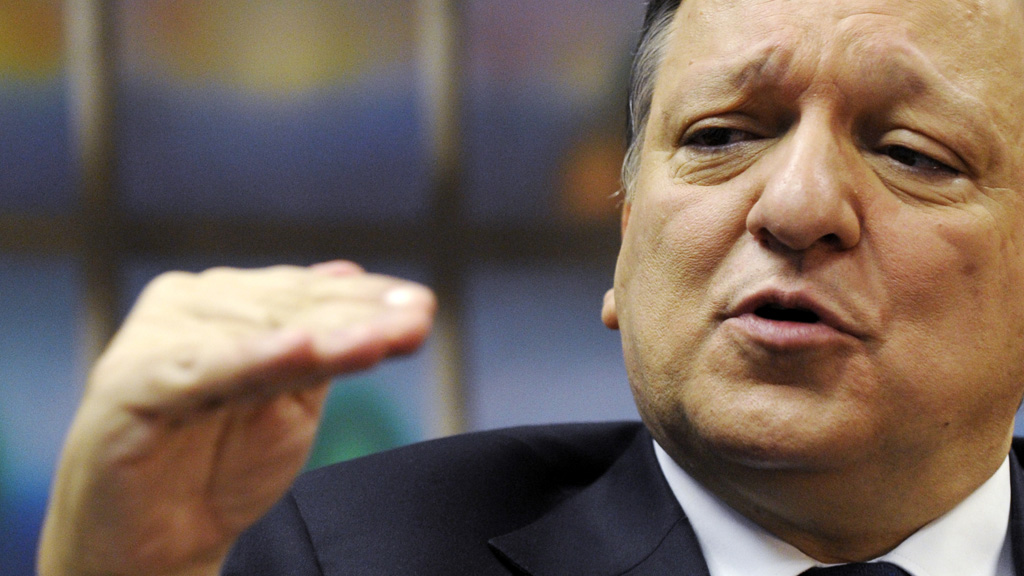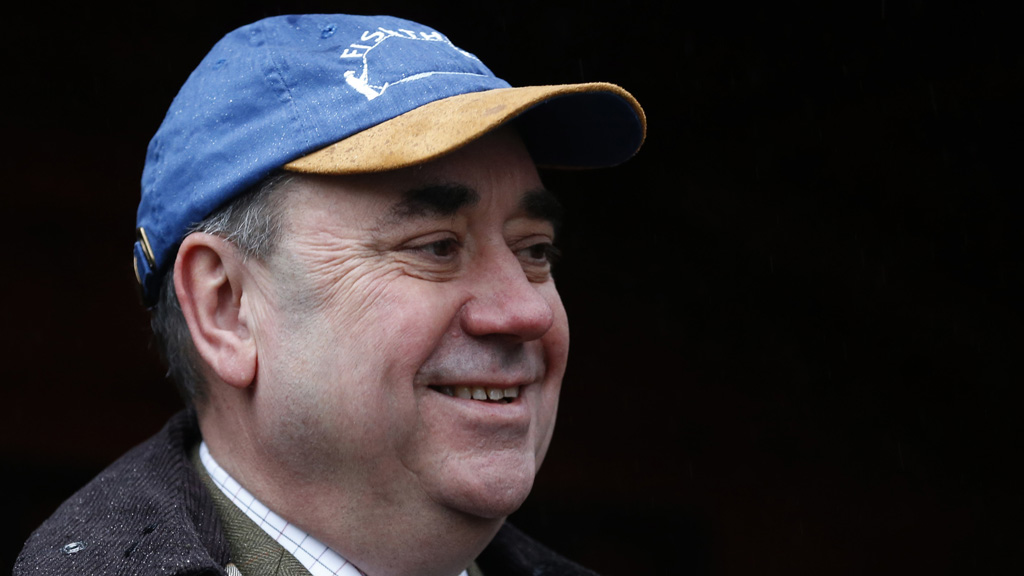‘Difficult, if not impossible’ for Scotland to join the EU
The European Commission president says member states are unlikely to agree to a newly independent Scotland joining the EU. The Scottish government says his comments are “preposterous”.

Jose Manuel Barroso said an independent Scotland would have to apply for EU membership and get the approval of all current member states if Scots vote Yes vote in September’s independence referendum.
Mr Barroso told the BBC: “In case there is a new country, a new state, coming out of a current member state, it will have to apply and… the application and the accession to the European Union will have to be approved by all the other member states of the European Union.
“I don’t want to interfere on your referendum here, your democratic discussion here, but of course it will be extremely difficult to get the approval of all the other member states to have a new member coming from one member state.
“We have seen Spain has been opposing even the recognition of Kosovo, for instance.
“So it is to some extent a similar case because it’s a new country and so I believe it’s going to be extremely difficult, if not impossible, a new member state coming out of one of our countries getting the agreement of the others.”
The Scottish government has said it will negotiate Scotland’s EU membership in the 18 months after the referendum, with the negotiations to be take place from within the Union while Scotland remains part of the UK.
Deputy First Minister Nicola Sturgeon said: “This is a preposterous assertion – as the ridiculous comparison with Kosovo illustrates. Scotland is already in the EU and has been for 40 years.
“As Mr Barroso rightly says, the question of Scotland’s independent membership of the EU is a matter for the democratic wishes of the people of Scotland and the views of other member states – not the European Commission.
“The fact of the matter is that no member state has said that it would veto Scotland’s continuing membership.
“We have put forward a suggested mechanism by which Scotland can make the transition from being in the European Union as part of the UK to being part of the European Union as an independent country.
“This can be done with continuity of effect and no detriment to other European states.”
Mr Barroso’s comments come days after the chancellor, George Osborne, backed by the other main parties at Westminster, ruled out the prospect of an independent Scotland entering a sterling currency union with the rest of the UK.

Scotland’s first minister, Alex Salmond, has called Mr Osborne’s intervention “ill-thought-out and misinformed”, and says he intends to “deconstruct” the chancellor’s position when he addresses business leaders in Aberdeen on Monday.
Mr Salmond said: “The reality is the pound is as much Scotland’s as the rest of the UK. By suggesting otherwise, the Westminster establishment – Tories, Labour and Lib Dems – are reaping a backlash from the ordinary people of Scotland, who feel this is an attempt to bully Scotland ahead of the democratic choice we all look forward to this September.”
He added: “The Scottish Government has welcomed the recent acknowledgement by the Treasury that it will remain legally liable for all debt issued by the UK Government up to the point of independence, and we will continue to take the fair and reasonable position that an independent Scotland should finance a fair share of that.
“However, the Chancellor will have to wake up to the fact that he cannot lay claim to assets to which Scotland has a share – such as the Bank of England and the pound – and still expect an independent Scotland to meet a share of UK liabilities.”
Read more – FactCheck: why oil and debt will decide Scotland’s future
Commenting on behalf of the Better Together campaign, shadow pensions minister Gregg McClymont said: “Alex Salmond’s reckless threat to default on debt because he won’t get a deal on the pound puts the pension of every Scot at risk.
“The idea that Alex Salmond can walk away from our debt obligations to the rest of the UK without consequences for Scots and their pensions is sheer fantasy.
“Alex Salmond is a man without a plan on currency and pensions. He needs to tell us what will happen to pensions now that the pound is off the table.”
Mr Salmond has also written to David Cameron urging the prime minister to distance himself from “anti-democratic” comments reportedly made by a coalition colleague.
Alex Salmond spoke out in the wake of concerns that the British Government could ignore a Yes vote in the Scottish independence referendum.
It follows claims, attributed to a senior coalition source in Friday’s Herald newspaper, that impossible demands in any post-referendum negotiations would not be met and that the “status quo” would then be the default option.
Mr Salmond said he was “astonished and disturbed” by the comments.